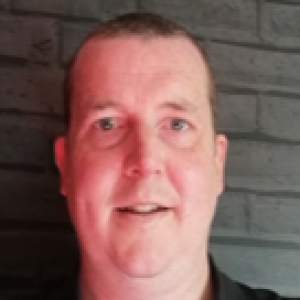
6.9K
Downloads
40
Episodes
Jeremy has always had a passion for developing primary pedagogy to improve children’s learning. As a trainee he was told “The children love being taught by you, now make sure they all learn something!” So began his quest for excellence. Since that day he has been judged by Ofsted to be an outstanding teacher and an inspirational school leader. He has been Commended in the Headteacher of the Year Awards and he is a Fellow of the Chartered College of Teaching. On his journey he has been helped by numerous outstanding teachers and this podcast is a way of helping teachers learn from the wisdom of others, just as he did.
Episodes

Wednesday Jan 26, 2022
What I wish I knew about behaviour with Graham Chatterley
Wednesday Jan 26, 2022
Wednesday Jan 26, 2022
Graham Chatterley is a former SEMH school leader who recently started his own training company. Having experienced a huge range of behaviour as both a Primary and Secondary teacher, Graham then started work in an EBD setting in 2007. Graham has now left his school leadership role to train and consult full time. He published his first book ‘Building Positive Behaviour’ last year.
Graham has led training for thousands of Educators across the North of England. He has great insight into how successful practice in a specialist setting can be transferred to mainstream schools. He believes that developing a supportive ethos and culture will always achieve better outcomes than quick fix strategies and believes the adults play a pivotal role in the behaviour of the students. This approach not only benefits every child, but it has an enormous impact on staff wellbeing.
Graham is the Director of Changing Perceptions Limited, where the training and support to schools is designed to do just that.
In this podcast we discuss so much, including ...
- Are you a teacher of a subject or are you a teacher of children?
- Is the grade more important or is it the child? It has to be child first.
- Prioritising as a teacher is the key element to creating a great environment for learning. The things that you can’t measure by testing are probably the most important ones to focus on.
- The idea that children are choosing to misbehave or be naughty is usually untrue. In reality the reason is unlikely to be any sort of conscious choice by the child.
- Why teachers may blame themselves for poor behaviour when actually it is very unlikely to be their fault. If teachers believe it is personal it will only damage the relationship between the adult and the student and this will make things worse.
- How using an authority figure approach failed miserably when Graham first became a teacher and it was only when he developed a more personable, positive approach with some of the children he found difficult to work with that things started to improve.
- Shifting the focus to developing children’s social and emotional wellbeing was when the penny dropped for many staff. That was the point when Graham started delving deeper and deeper into understanding why children behaved as they did.
- If support is provided at the right time in mainstream schools then most children will succeed in that setting. It works in other countries so there is no reason why it shouldn’t work here.
- When a child is feeling anxious then the wrong part of the brain is activated and the child won’t be able to learn effectively.
- Accepting behaviour mistakes are learning opportunities. It’s how we teach every other subject. Everything we do at school is about using corrections productively. Why is children’s behaviour treated any differently?
- Those children who don’t know how to behave should not be punished when they get things wrong. If you want to learn the guitar but play it badly because you don’t know how to do it and get punished then you will never want to play again!
- It's all about mindset. Put yourself in the child’s shoes before you start deciding what to do.
- Behaviours generally come from 3 different places. Fear responses leading to lashing out, survival responses which lead to avoidance, overwhelmed responses leading to irritating problems getting bigger and bigger. Adults can usually self-regulate, some children can’t. We need to teach them how.
- The most dangerous phrase in education is ‘It’s what we’ve always done.’ There can be great resistance from adults to move away from the status quo and use new approaches.
- Early intervention is always the key if you want to avoid crisis point. Lots of little, low level interventions across the day will have a very positive impact on anxious children and will often prevent them from reaching crisis point.
- Choices can work if children are slightly wobbling but won’t work if children are in distress. Once they are distressed then children are unable to make choices.
- How Graham came to write his first book entitled, 'Building Positive Behaviour: Returning to learning using a Sequential Approach', which was prompted by his concern for the the authoritarian views of the government's behaviour tsar.
You can connect with Graham on:
Twitter graham chatterley @grahamchatterl2
LinkedIn graham chatterley | LinkedIn
You can listen to him on The soundtrack to your teaching career (teacherhug.co.uk)
Or buy his book Building Positive Behaviour: Returning to learning using a Sequential Approach : Chatterley, Graham: Amazon.co.uk: Books
Apologies for not publishing the podcast last week. This was due to a family bereavement.
Apologies too for the inconsistent quality of the audio in this podcast. It was a bad WiFi day!

No comments yet. Be the first to say something!